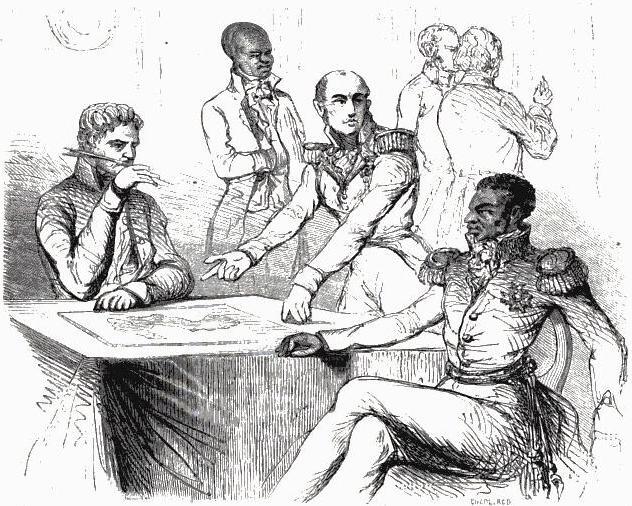The Haitian independence debt involves an 1825 agreement between Haiti and France that included France demanding an indemnity of 150 million francs in five annual payments of 30 million to be paid by Haiti in claims over property – including Haitian slaves – that was lost through the Haitian Revolution in return for diplomatic recognition. Haiti was forced to take a loan for the first 30 million,[a] and in 1838 France agreed to reduce the remaining debt to 60 million to be paid over 30 years, with the final payment paid in 1883.[1][2][b] However, The New York Times estimates that because of other loans taken to pay off this loan, the final payment to debtors was actually in 1947. They approximated that in total 112 million francs was paid in indemnity, which when adjusted for the inflation rate would be $560 million in 2022, but considering that if had been invested in the Haitian economy instead, it could be valued at $115 billion.[4][5][c]
Restoration France’s demand of payments in exchange for recognizing Haiti’s independence was delivered to the country by several French warships in 1825, twenty-one years after Haiti’s declaration of independence in 1804.[7][8] Despite several revolutions in France after that date (July Revolution, French Revolution of 1848, Paris Commune), successive governments, be they imperial, monarchist or republican, continued enforcing the debt and coercing Haiti to pay.[d] Haiti had to take a loan in 1875 to pay back the final portion of the original loan, and the bank that benefited most from this was Crédit Industriel et Commercial.[9] Even after the indemnity was paid, Haiti had to continue paying the other loans, and the government of the United States funded the acquisition of Haiti’s treasury in 1911,[10] and in 1922, the rest of Haiti’s debt was moved to be paid to American investors.[11] The New York Times states that it took until 1947 for Haiti to finally pay off all the associated interest to the National City Bank of New York (now Citibank).[10][12] In 2016, the Parliament of France repealed the 1825 ordinance of Charles X, though no reparations have been offered by France.[5] These debts have been denounced by some historians and activists as responsible for Haiti’s poverty today and a case of odious debt.[3]



… for stuff stolen from another thief who took it brutally - tool marks on the bones - from someone who happened to wander in and notice no one stopped him - previous owners had died out - and settled in. US would be the fifth known entity to lay claim to that land.
You put on that mantle to cry foul, you gotta wear the stains on it too. Also, maybe don’t be the vegan at the party on that.
With a few exceptions, a lot of “ancestral native land” in North America was held by the occupying tribe for less than 100 years who brutally took it from the previous tribe. People believe in the “noble savage” stereotype all the time, when the truth is they were human. And just like all humans, they were brutal, violent, and capable of great evil towards one another.